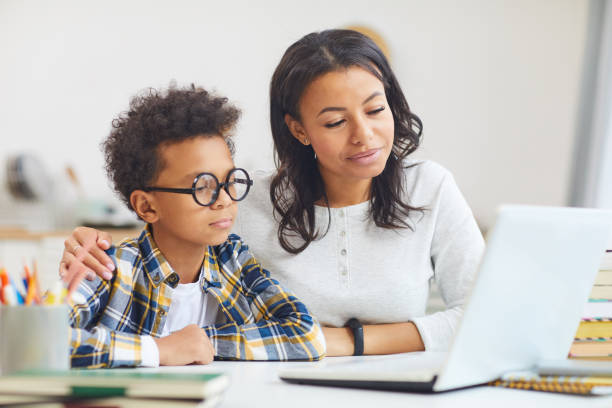
In today’s digital age, children are exposed to screens more than ever before. From smartphones to tablets, laptops to gaming devices, the amount of artificial light that children are exposed to on a daily basis can have negative effects on their vision and overall health. In this article, we will discuss some tips for parents on how to reduce their child’s blue light exposure and protect their vision.
Understanding Blue Light
Before we can discuss ways to reduce blue light exposure, it’s important to understand what blue light is and how it affects the eyes. Blue light also known as High Energy Visible (HEV) light is a type of light with a short wavelength that is emitted by many digital devices. It can penetrate deep into the eye and has been linked to eyestrain, headaches, and disrupted sleep patterns.
1. Limit Screen Time
One of the simplest ways to reduce blue light exposure is to limit the amount of time your child spends in front of screens. The American Academy of Pediatrics recommends that children under 18 months should have no screen time, children between 18-24 months should have limited screen time, and children over 2 years should have no more than 1-2 hours of screen time per day.
2. Use Blue Light Blocking Glasses
Blue light blocking glasses are a great way to reduce the amount of blue light that reaches your child’s eyes. These glasses have special lenses that filter out blue light, reducing eye strain and other negative effects. There are several types of blue light blocking glasses available, including anti-blue ray glasses, blue light protection glasses, and blue light filter glasses.
3. Take Breaks
Another way to reduce HEV light exposure is to take frequent breaks from screens. Encourage your child to take a break every 20 minutes and look away from the screen and focus on faraway objects for at least 20 seconds. This can help reduce eyestrain and prevent headaches.
4. Adjust Screen Settings
Most digital devices have settings that allow you to adjust the amount of blue light emitted from the screen. Many devices have a “night mode” or “blue light filter” setting that reduces the amount of blue light emitted, making it easier on the eyes. Encourage your child to use these settings whenever possible.
5. Encourage Outdoor Play
Outdoor play is not only important for physical health but can also help reduce blue light exposure. Spending time outside during the day can help regulate the body’s natural sleep-wake cycle and promote healthy eye development. This will also help to reduce the risk of contracting myopia or also known as nearsightedness.
6. Practice Good Sleep Habits
Exposure to blue light at night can disrupt sleep patterns, making it harder for your child to fall asleep and stay asleep. Encourage your child to practice good sleep habits, such as setting a regular bedtime and avoiding screens for at least an hour before bedtime.
In Conclusion, reducing your child’s blue light exposure is important for their vision and overall health. By limiting screen time, using blue light blocking glasses, taking breaks, adjusting screen settings, encouraging outdoor play, and practicing good sleep habits. Parents can help protect their child’s eyes and promote healthy screen habits by following these practices. If you want to know where to get affordable and highly effective blue light blocking glasses for kids, check out Kooloptix!
